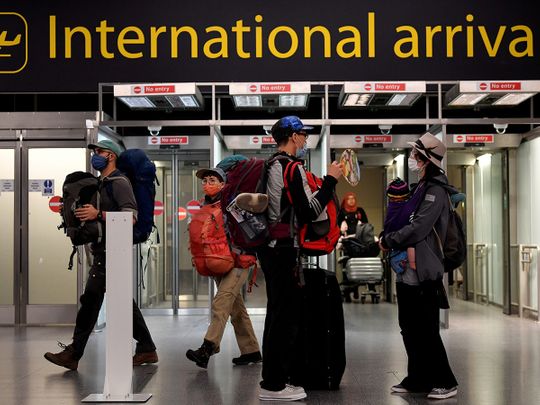
Dubai: The COVID-19 breakout has left a huge dent in Gulf airlines' hub status, with the region seeing a steep 88 per cent decline in connectivity levels in September. In fact, connectivity levels reduced by more than 85 per cent for the five most-connected countries in the region, according to the latest data from the industry grouping IATA.
Only strict testing as a requirement for boarding will ensure a return of confidence among travellers, as quarantine measures have outlived their use. “The systematic testing of travelers is the immediate solution to rebuilding the connectivity that we have lost - the technology exists," said Sebastian Mikosz, IATA’s Senior Vice-President for Member External Relations.
"The guidelines for implementation have been developed. Now we need to implement, before the damage to the global air transport network becomes irreparable."
IATA's latest warnings come after it said that global airline industry will lose as much as $118 billion this year, while the expected recovery in 2021 will also not amount to much.
Fuel switch
IATA has called on governments to support the development of a Sustainable Aviation Fuel (SAF) as a critical step to achieving its target to cut net emissions to half by 2050.
“The cost of SAF is too high and supplies too limited - this crisis is the opportunity to change that," said Alexandre de Juniac, Director General and CEO of IATA. "Putting economic stimulus funds behind the development of a large-scale competitive SAF market would be a triple win—creating jobs, fighting climate change and sustainably connecting the world.”
Government stimulus packages could help promote sustainable fuels through direct investment, loan guarantees and incentives for the private sector, as well as regulations that channel feedstock towards sectors such as aviation rather than to other low-carbon transport industries.
Carbon credits
The industry body also launched a real-time marketplace for the settlement of funds on trades in carbon offsets, called the Aviation Carbon Exchange (ACE). Airlines are buying carbon credits to meet their individual commitments. (A carbon credit is a permit that allows the company that holds it to emit a certain amount of C02 or other greenhouse gases.)
US airline JetBlue became the first carrier to make a transaction on the platform. “Airlines are serious in their commitment to reduce emissions and they need a reliable tool to access quality carbon credits in real-time,” said de Juniac. “ACE will be a key tool helping airlines efficiently manage these important transactions”
• Shanghai is now the top ranked city for connectivity with the top four most connected cities all in China —Shanghai, Beijing, Guangzhou and Chengdu.
• New York (a 66 per cent fall in connectivity), Tokyo (65 per cent), Bangkok (81 per cent), Hong Kong (81 per cent) and Seoul (69 per cent) all exited the Top 10.
• The study reveals that cities with large numbers of domestic connections now dominate, showing the extent to which international connectivity has been shut down.








